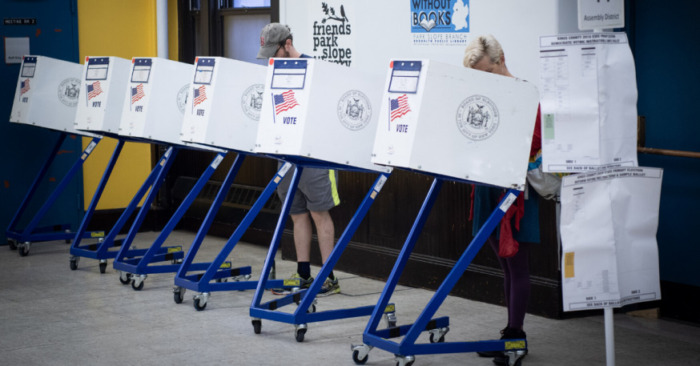
(Photo: NYC Mayors Office via Flickr)
March 12, 2020 By Allie Griffin
The Queens Borough President special election is still on despite growing fears over the spread of the coronavirus.
As the number of cases of COVID-19 has risen to 62 cases in the city, numerous conferences and large events, including the St. Patrick’s Day Parade in Manhattan have been canceled.
However, the March 24 special election for borough president will go on, Mayor Bill de Blasio said Wednesday.
“I am really, really hesitant to change an election, ever, for anything,” de Blasio said at a press conference. “I think it’s a very dangerous thing to do in a democracy.”
He went on to say that the City will talk to health care experts and consider the dynamics, but ultimately will not be postponing the election.
“Right now, it is not my intention to change an existing election.”
Early voting for the election begins this Saturday, March 14 and ends Sunday, March 22. The special election will determine who will be the borough president after the seat was vacated on Jan. 1 by Melinda Katz, who took over as Queens District Attorney.
One of the six candidates for Queens borough president is taking preventative measures in the face of the coronavirus outbreak.
Council Member Costa Constantinides is suspending all in-person canvassing, effective immediately, he announced today.
“Public safety is my top priority. In order to protect the well-being of our team, our volunteers, and all Queens residents, effective immediately, our campaign has suspended all in-person canvassing and is transitioning our voter contact to calls, texts, and digital outreach in the interest of public health,” Constantinides said in a statement.
He also urged Queens residents to take advantage of early voting in order to avoid possible crowds on election day.
“To be clear, we are still running a campaign and encourage Queens residents to utilize early voting, which begins Saturday, to avoid a high volume of people on Election Day.”
COVID-19 is transmitted when respiratory droplets from a sneeze, cough or spit of an infected person is transferred directly into another person.
Global health experts advise people to practice “social distancing” and avoid large crowds and close contact with others, which increases the chance of contracting the virus.
